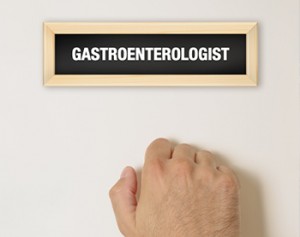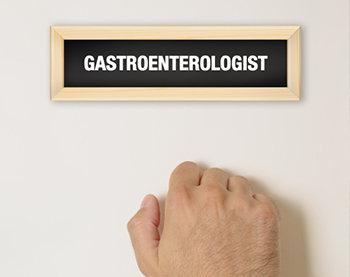 An ERCP is performed by a gastroenterologist. Gastroenterologists are specialists that have unique training and extensive knowledge of the digestive tract. Having a gastroenterologist experienced in ERCP is extremely important to the efficacy of the procedure. Highly-qualified gastroenterologists are likely to identify abnormalities and take timely action to treat conditions in the digestive tract. However, not all gastroenterologists have sufficient training to perform an ERCP correctly, which places the patient at risk.
An ERCP is performed by a gastroenterologist. Gastroenterologists are specialists that have unique training and extensive knowledge of the digestive tract. Having a gastroenterologist experienced in ERCP is extremely important to the efficacy of the procedure. Highly-qualified gastroenterologists are likely to identify abnormalities and take timely action to treat conditions in the digestive tract. However, not all gastroenterologists have sufficient training to perform an ERCP correctly, which places the patient at risk.
Gastroenterologist Training
To become a gastroenterologist, physicians must first complete a three year residency in Internal Medicine. After this has been completed, physicians can begin the specialized training, or fellowship, required for gastroenterology. Gastroenterologist training generally takes about two to three years.
ERCP Training
During gastroenterologist training, most gastroenterologists undergo extensive training for performing ERCP and other types of endoscopic procedures. Gastroenterologists learn safe and effective techniques for removing bile stones and colon polyps without performing surgery. Gastroenterologists also learn how to place stents and dilate the intestines and esophagus. In addition, gastroenterologists learn how to interpret biopsy results from tissue obtained during ERCP.
Gastroenterologist Areas of Study
Gastroenterologists study the organs and ducts of the gastrointestinal tract in detail, including:
• Colon
• Rectum
• Esophagus
• Liver
• Stomach
• Small intestine
• Pancreas
• Gall bladder
• Bile ducts
Board Certification and Additional Distinctions
During gastroenterology training, the education is overseen by national societies such as the American Society for Gastrointestinal Endoscopy to ensure quality and accuracy in teaching. After completing training, gastroenterologists are considered “Board Eligible.” Gastroenterologists must complete a rigorous board certification test administered by the American Board of Internal Medicine to become board certified. Additional distinctions in gastroenterology may be earned by contributing significant research, teaching, or other service to the field of gastroenterology. These distinctions may be denoted with the suffixes FACG and FACP.
Gastroenterologist ERCP Consultation
Meeting with a gastroenterologist prior to ERCP can be helpful. Patients should have a list of questions, as a gastroenterologist may be able to answer questions in a more detailed way than physicians that have been previously seen. Patients may also be able to impart insights into personal medical history and family history that may help the gastroenterologist to have a better idea of what may be causing symptoms or how to best treat a condition.
ERCP Complications
Despite the high level of training required to become a gastroenterologist, sometimes complications still occur during ERCP. Complications may be the result of unforeseen inflammation or other issues that are unavoidable. In some cases, however gastroenterologists may be guilty of negligence or malpractice. If a complication has occurred during ERCP, an experienced ERCP malpractice attorney may be able to determine whether or not the error was the result of malpractice.
Sources:
“ERCP (Endoscopic Retrograde Cholangiopancreatography).” National Digestive Diseases Information Clearinghouse (NDDIC). National Institute of Diabetes and Digestive and Kidney Diseases, 29 June 2012. Web. 16 Sept. 2014
“Gastroenterology.” ACP American College of Physicians. American College of Physicians, 1 Jan. 2014. Web. 16 Sept. 2014. <http://www.acponline.org/patients_families/about_internal_medicine/subspecialties/gastroenterology/>
“Gastroenterology.” Washington School of Medicine. Washington University School of Medicine. Web. 16 Sept. 2014. <http://gastro.wustl.edu/patientcare/what is ERCP.html>
“What Is a Gastroenterologist?” American College of Gastroenterology. American College of Gastroenterology, 1 Jan. 2014. Web. 16 Sept. 2014
